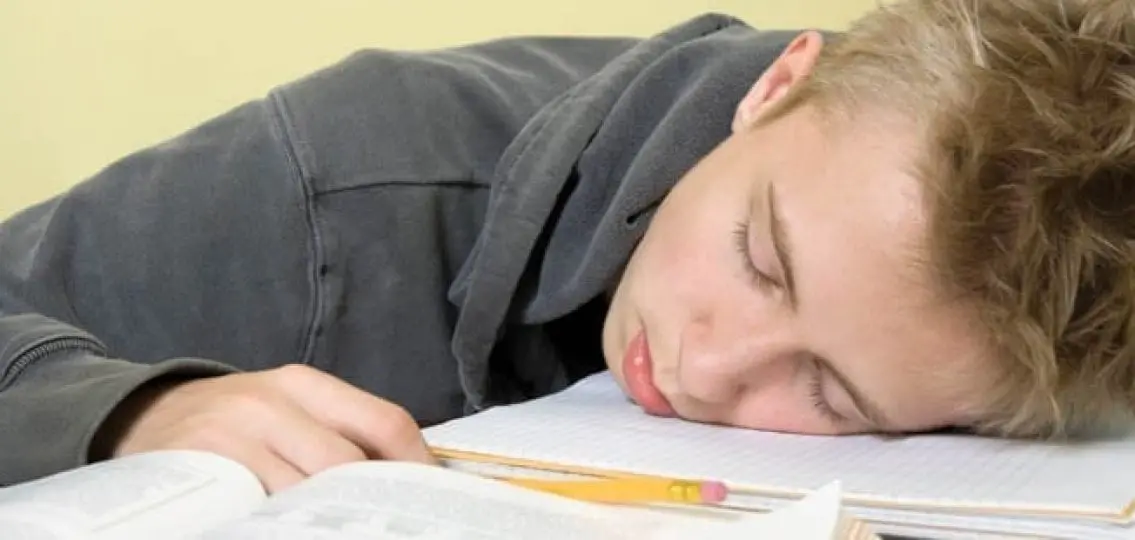Teenagers have it rough when it comes to getting enough sleep. Developmentally, they require about the same amount of sleep as a 9-to-11 year old — 8-1/2 to 9-1/2 hours per night. But a teenager’s biological sleep clock is quite different than a 9-to-11 year old’s. They don’t get tired until later at night and they are not ready to wake up until later in the morning. No wonder it’s hard for teenagers to get the required number of Zzzzs, right? So how to help when it comes to teens and sleep? We asked Dr. John Schuen, a pulmonologist at Helen DeVos Children’s Hospital — who’s been working with families on sleep issues for more than 20 years — for his sleep advice.
3 Sleep Tips
1) Have a sane schedule.

“Teenagers need to learn early on that sometimes they have to make choices,” says Schuen. “Some days, they may not be able to socialize with friends, go to track practice, and get all their homework done.” Talk to your teenager about dropping extracurriculars that don’t mean that much to them. Remember, most colleges want applicants to do a couple meaningful extracurriculars — paid work counts too — so there is no reason to fill up a schedule with lots of activities.
2) Set rules for technology.
Establishing rules around technology helps minimize activities that can set your teenager up for failure when it comes to teens and sleep, says Schuen. Specifically, technology interferes with sleep in two ways. First, some teenagers can’t resist the lure of socializing with peers online late into the night. “You can’t be texting at 1 a.m. and hope to get enough sleep,” he says.
Second, the light emitted by a device literally keeps your teenager awake. “That light is part of the reason that bedtimes are being pushed toward midnight or 1 a.m.,” says Schuen. “It stimulates the areas of our brain that help us to stay awake during the day, so using technology makes us want to stay up later at night.”
Parents should set reasonable rules for technology, such as no phones after 10 p.m. and at least 30 minutes of time off a computer before bedtime. “Some of our teenagers are really mature and can do that on their own,” adds Schuen. “Others may need a parent to step in.”
3) Avoid caffeine.
Finally, teenagers should not be drinking caffeine. “Teenagers are much more sensitive to caffeine than even 20 somethings are,” says Dr. Schuen. “Caffeine lasts in their system for hours longer.”
Is Napping Bad? Naps Interfere with Teens and Sleep
Some teenagers are in the habit of staying up late, rising early for school, and making up their sleep deficit with an afternoon or early-evening nap.
Bad idea, says Schuen.
“Napping during the day is not helpful because it fragments sleep,” he explains. “Instead, encourage your teenager to stick it out and go to bed earlier.” In other words, 30 minutes more sleep in the afternoon is not as beneficial as adding 30 minutes of sleep at night. “Your teenager will be much better rested if she adds that sleep at the end of the day,” says Schuen.





